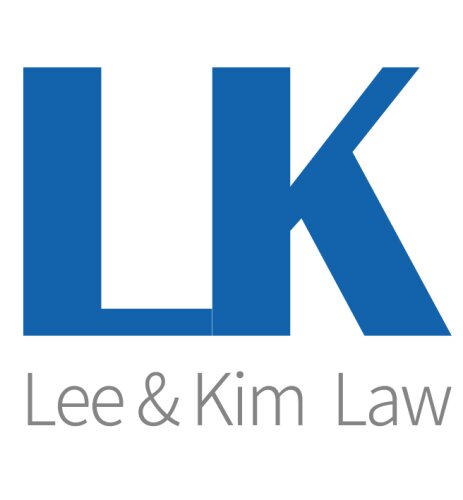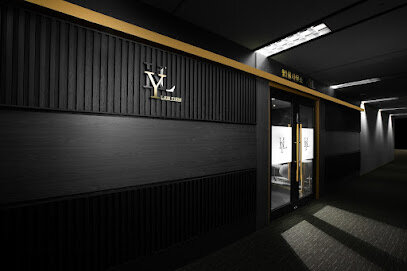Best Landlord & Tenant Lawyers in South Korea
Share your needs with us, get contacted by law firms.
Free. Takes 2 min.
Free Guide to Hiring a Real Estate Lawyer
Or refine your search by selecting a city:
List of the best lawyers in South Korea
About Landlord & Tenant Law in South Korea
The landlord and tenant law in South Korea is primarily governed by the Housing Lease Protection Act. This law is designed to protect the rights of both landlords and tenants, ensuring fairness and clarity in rental agreements. A unique aspect of South Korean rental agreements is the "Jeonse" system, a traditional lease concept where a large lump-sum deposit is paid instead of monthly rent. Understanding the intricacies of these agreements is vital for both landlords and tenants to avoid disputes and to make informed decisions.
Why You May Need a Lawyer
Engaging a lawyer may be necessary under several circumstances. Tenants might seek legal help if they face eviction, rent disputes, or issues regarding return of their deposit. Landlords might require assistance in drafting lease agreements, handling tenant violations, or dealing with squatters. Legal help ensures that both parties' rights are upheld, disputes are resolved efficiently, and any potential litigation is managed professionally.
Local Laws Overview
The primary legislations affecting landlord and tenant relationships in South Korea include the Civil Act and the Housing Lease Protection Act. Key aspects of these laws include:
- Security Deposit: Known as "Jeonse," the deposit system is an integral part of many rental agreements. Legally, landlords must return this deposit under specified conditions at the lease's end.
- Rent Regulation: The laws regulate rent increases and set limits on the frequency and extent of such increases.
- Eviction Rules: Protect tenants from sudden evictions. Landlords must provide a valid reason and adequate notice to terminate the lease.
- Lease Duration: Default two-year tenure for residential leases unless otherwise agreed upon, providing a stability guarantee for tenants.
Frequently Asked Questions
What is the Jeonse system, and how does it work?
The Jeonse system is a unique leasing arrangement in South Korea where tenants provide a large upfront deposit to the landlord, which is returned at the end of the lease term. The tenant generally does not pay monthly rent.
How much notice must a landlord give to evict a tenant?
Under the Housing Lease Protection Act, landlords must typically provide a notice period equivalent to the agreed rental payment cycle (e.g., one month for monthly rent). The rent cycle should be clearly stated in the lease agreement.
Can a landlord increase rent arbitrarily during a lease term?
No, rent increases must be reasonable and are often regulated. They must also comply with any terms agreed upon in the lease contract regarding timing and percentage of increase.
What happens if a tenant damages the property?
The tenant is responsible for any damage beyond normal wear and tear. Landlords can legally deduct repair costs from the security deposit if the tenant does not fulfill repair obligations.
What is the procedure for returning a Jeonse deposit?
At lease termination, the landlord must inspect the property for damages. Once both parties are satisfied, the landlord is obliged to return the Jeonse deposit promptly as per the contractual timeline.
Can a lease be terminated before it expires?
Both landlords and tenants can mutually agree to terminate a lease early, but there may be penalties or specific conditions as defined in the contract or under applicable laws.
What legal recourse do tenants have if their landlord fails to return the deposit?
Tenants can file a claim through the local Small Claims Court or engage a legal professional to pursue the return of their deposit in such cases.
Are there laws protecting tenants from harassment by landlords?
Yes, tenants are protected against harassment and undue pressure, with legal measures available through tenant protection regulations.
How can tenants ensure their rental agreement is legally sound?
Tenants should have contracts reviewed by legal professionals who are familiar with South Korean law to ensure all terms conform to legal standards and offer adequate protection.
Is tenant insurance mandatory in Korea?
While not mandatory, tenant insurance is strongly recommended to cover personal property and potential liabilities during the lease period.
Additional Resources
Several resources offer assistance and guidance for matters related to landlord and tenant in South Korea:
- Ministry of Land, Infrastructure, and Transport: Offers guidelines and resources related to housing.
- Korea Legal Aid Corporation: Provides legal advice and assistance to those in need.
- Local tenant associations: Offer support and information to tenants facing legal issues.
Next Steps
If you require legal assistance in landlord and tenant issues, consider the following steps:
- Identify specific issues: Clearly define your problem or query related to the rental agreement.
- Consult a legal expert: Seek a lawyer specialized in landlord and tenant law for an informed perspective.
- Collect documentation: Ensure all relevant documents, such as contracts, communications, and receipts, are organized for legal consultation.
- Evaluate options: Discuss legal strategies or negotiating terms with your lawyer to understand potential outcomes.
Proactive legal advice and early intervention can significantly mitigate potential disputes in landlord and tenant relationships.
Lawzana helps you find the best lawyers and law firms in South Korea through a curated and pre-screened list of qualified legal professionals. Our platform offers rankings and detailed profiles of attorneys and law firms, allowing you to compare based on practice areas, including Landlord & Tenant, experience, and client feedback.
Each profile includes a description of the firm's areas of practice, client reviews, team members and partners, year of establishment, spoken languages, office locations, contact information, social media presence, and any published articles or resources. Most firms on our platform speak English and are experienced in both local and international legal matters.
Get a quote from top-rated law firms in South Korea — quickly, securely, and without unnecessary hassle.
Disclaimer:
The information provided on this page is for general informational purposes only and does not constitute legal advice. While we strive to ensure the accuracy and relevance of the content, legal information may change over time, and interpretations of the law can vary. You should always consult with a qualified legal professional for advice specific to your situation.
We disclaim all liability for actions taken or not taken based on the content of this page. If you believe any information is incorrect or outdated, please contact us, and we will review and update it where appropriate.
Browse landlord & tenant law firms by city in South Korea
Refine your search by selecting a city.















